Haz clic aquÍ para leer en español
Dirt road becomes herringbone brickwork upon entering the town of some 500 residents. The evening we walked in, a horse grazed peacefully in a park, a chicken crossed the road. The sights include rough hewn wood buildings, surrounded by forest and peaks. There were no stoplights; most corners don’t even have stop signs. “We love it here because there are more children, dogs, and horses in the streets than cars,” Rodrigo later explained.
In our days here, we have found most of the businesses around town are run by women. In the center of the town plaza the statue is in homage to the pioneer woman, the first town to in our travels to acknowledge this.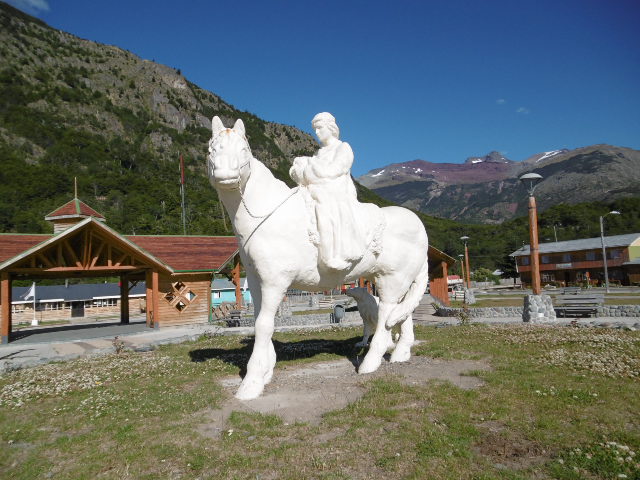
The first settlers to arrive from the north fought hard to exist. Each year the men would wander far in search of work at the estancias in Argentina. The women were left to manage the homestead and raise the children. Here they weathered heavy winters. There was very little food besides that of the animals and the staples which the men brought home when they were able.
To this day, there is a fire in the spirit, a fierce pride carrying forward the heritage of these pioneer women. The lifestyle is not a distant memory. We are having once (third meal – usually eaten around five or six p.m. and comprised mostly of leftovers), with a woman who arrived here in 1997, before there was a road. Up until eight years ago, the streets were run by a herd of eight horses who ate the leaves off of any tree you planted and scratched their butts on satellite dishes until they fell over. If you closed the shutters, the leader would nip the rope to peep his head in. Board it up and he would kick them in.
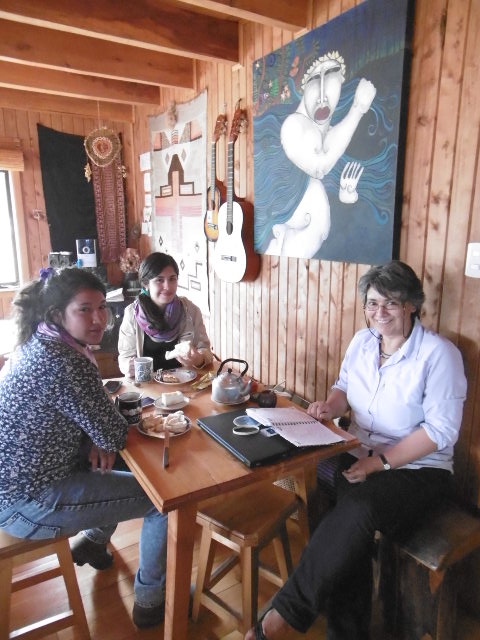
I spoke with a young woman who works at El Mosco, supporting her agriculture studies at the university up in Coyhaique. She grew up on a remote settlement on an arm of Lago O’Higgins, where the boat passes only once every 10 days or so. Their closest neighbors are a two hour horse ride away. She hopes to one day keep her father’s land working and thriving.
As the carretera austral reaches further south, becoming better known and more established, more tourists arrive. The town begins to change and grow. Jorge, who established El Mosco and passed away only three years since was, “a pioneer of tourism in this town.” Quietly it grows. The sense of calm is yet strong. Doors are not locked. The local radio, brought here by a priest in exchange for the village building a chapel, consists of people chatting. Greta and Ale’s search for a saddle is aired as we sit in Marcela’s workshop.
Both Neon and I feel the draw and carry a certainty of one day returning to this place. We are honored to be able to support businesses run by women in these regions and honored to see, even briefly, such depth in a small community.
Villa O´Higgins
Traducción por Henry Tovar
El camino de tierra se convierte en losas de ladrillo entrando en el pueblo de unos 500 habitantes. La noche en que entramos, un caballo pastaba tranquilamente en un parque, un pollo cruzó la carretera. Los lugares de interés incluyen edificios de madera , rodeados de bosques y picos. No había señales de parada; la mayoría de las esquinas no tienen ni siquiera las señales de alto. ´´nos encanta estar aquí porque hay más niños, perros y caballos en la calles que autos´´. Rodrigo explicó mas adelante.
En nuestros días aquí hemos encontrado que la mayor parte de las empresas alrededor de la ciudad están a cargo de mujeres. En el centro de la plaza de la ciudad esta la estatua en homenaje a la mujer pionera, es la primera ciudad en nuestro viaje en homenajear esto.

Los primeros colonos llegaron desde el norte luchando duro para existir. Cada año, los hombres iban muy lejos de casa en busca de estancias de la Argentina. Las mujeres se quedaban para administrar la granja y criar los niños. Aquí pasaron duros inviernos. Había muy poca comida además de la de los animales y los alimentos importantes que los hombres traían a casa cuando podían.
Hasta el día de hoy, hay un incendio en el espiritu, un feroz orgullo de llevar adelante la herencia de estas mujeres pioneras. El estilo de vida no es un recuerdo lejano. Estamos teniendo (Una tercera comida, por lo general alrededor de las 5:00 o 6:00pm y compuesta principalemente de sobras), con una mujer que llego aquí en 1997, antes de que hubiera un camino. Hasta hace ocho años, las calles estaban a cargo de una manada de ocho caballos que comían las hojas de cualquier árbol que plantase para luego rayaban la culata de antenas parabolicas hasta que caían al suelo. Si cerrabas las persianas el líder cortaba la cuerda para asomar la cabeza, montarse y patearlas.

Hablé con una mujer joven que trabaja en el Mosco, apoyando sus estudios de agricultura en la universidad de Coyhaique. Creció en un asentamiento remoto en un brazo del Lago O´higgins, donde el barco pasa solo cada 10 días mas o menos. Sus vecinos más cercanos estan a dos horas de distancia montando caballo. Ella espera algún día mantener la tierra de su padre trabajando y próspera.
A medida que la carretera austral llega más al sur, convirtiendose mas conocida y más establecida, más turistas llegan. La ciduad comienza a cambiar y crecer. Jorge, que estableció El Mosco y falleció hace sólo tres años desde que fue ´´un pionero del turismo en esta ciudad´´ crece silenciosamente. La sensación de calma todavía es fuere. Las puertas no estan bloqueadas . la radio local, traída aquí por un sacerdote a cambio de la construcción de una capilla del pueblo, se compone de personas hablando, la busqueda de Greta y Ale de una silla de montar esta al aire mientras nos sentamos en el taller de Marcela.
Ambas Neon y yo sentimos el sorteo y tenemos una certeza de que volveremos algún día a este lugar. Nos sentímos honradas de apoyar las empresas dirigidas por mujeres en estas regiones y horadas de ver, auque sea brevemente, tal profundidad en una pequeña comunidad.
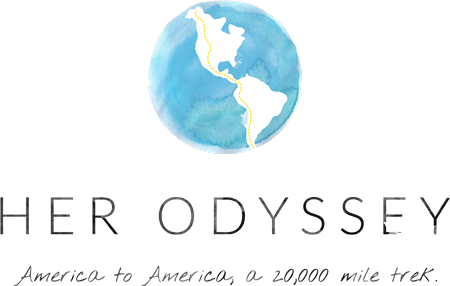

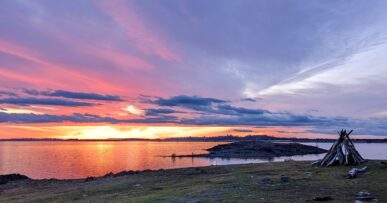
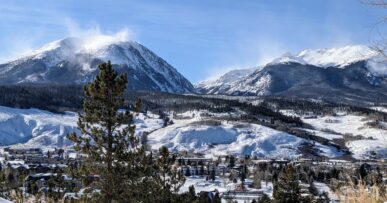
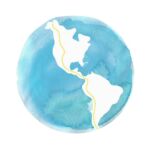

Comments (1)
Hi Bethany,
Thanks for this moving tribute to the “pioneer women” in this agricultural area. It is so quiet and peaceful I can understand why you want to return in the future.
Blessings on your travel,
Cliff Rawley